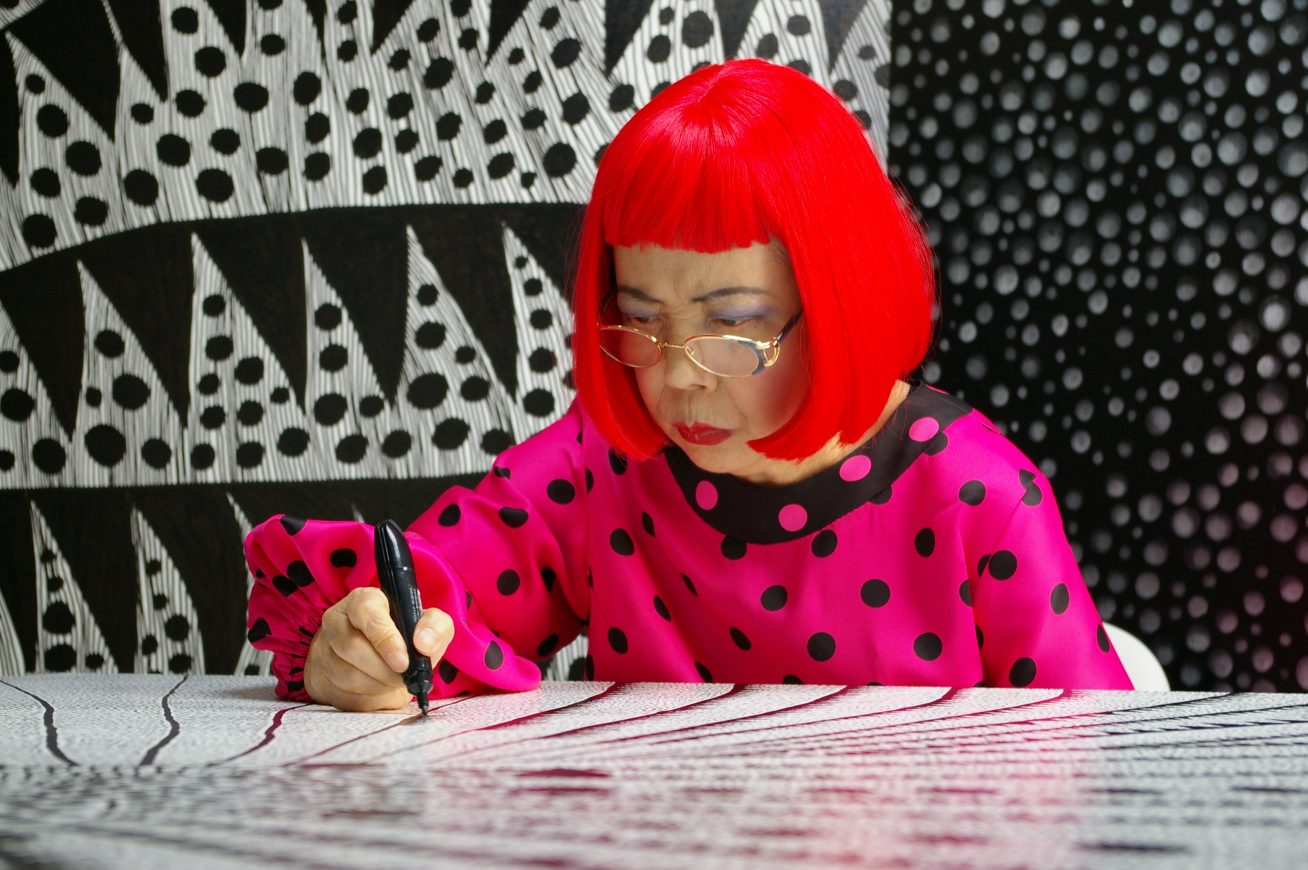
Dir.: Heather Lenz; Documentary with Yayoi Kusama; USA 2018; 78 min.
Heather Lenz’s captivating debut feature documentary is a portrait of Japanese painter, performance artist and film maker Yayoi Kusama, today the best-selling living female artist, whose long career was rescued from oblivion in the 1980s, when she shared the limelight with such luminaries as Jackson Pollack.
Yayoi Kusama was born Matsumoto, Japan in 1929. Her parents were respectable middle-class people whose torrid marriage was the troubled backcloth to Kusama’s early life. When still a young teenager, she was forced to work in a military factory, producing parachutes for Japanese soldiers. In 1948 she enrolled at the Kyoto School for Arts and Crafts, gaining success afterwards with her lively watercolours. Emigrating to New York in the late 1950s, she became famous for her room-sized installations such as Mirror/infinity (1963). This concept was a first for the New York art scene, but being a woman and a foreigner, she was literally written out of history: Andy Warhol and Claes Oldenburg exhibited work “very much unlike their past creations”, commented one art critic, implying that Kusama’s ideas had been “borrowed” by men, who dominated the galleries in the 60s and 70s when women artists could never hope to exhibit on their own, only in groups.
During the Vietnam War, Kusama staged many ‘happenings’, and nudity featured proudly. In 1966 she visited the Venice Biennale, which she ‘crashed’ with her installation of many hundred spheres on a ‘kinetic carpet’. But when the spheres went on sale for $4 each, she was evicted. In 1993 she would be the first Japanese artist at the 45th Biennale to have a solo show at the place she had ‘crashed’ in 1966.
Tension with her father gave way to difficulties with intimacy in adulthood. Her longest platonic relationship was with the artist Joseph Cornell, and lasted until to his death in 1972. When Cornell and her were kissing in the garden of the house he shared with his mother, she would ambush their intimacy by pouring cold water over Kusama. Returning to Japan in 1973, her name in the annuals of her High School in Matsumoto was soon obliterated due of her “shameful” behaviour. Today, her permanent life sculptures still stand in front of the Matsumoto City Museum of Art, where she had last exhibited in 2005.
In 1977 Kusama checked into the Seiwa Hospital for the Mentally Ill – where she returned every night, having spend the day working in her studio. Sporting her ‘signature’ red Wig and Polk-Dot clothing in the studio, she works intensively to finish her intricate paintings in three days “because I am in the last phase of my life, and have to no time to lose”. Clearly her work is informed by her complex past.
Since 2001 Kusama has had eight major exhibitions all over the world; in 2017 “Yayoi Kusama Infinity Mirrors” opened at the Hirshhorn Museum in Washington DC and will travel to five major museums until the end of 2019. The exhibition celebrates her 65-year long career comprising six of her stunning “Infinity Mirror Rooms” and other key works of together with her latest series “My eternal Soul”.
Lenz captures the personality of this amazing artist who has triumphed over adversity. Today, Yayoi Kusama is serene, her colour schemes reflect optimism through vibrant primary colours. She is an incarnation of the phrase: “if it wasn’t for art, I would have killed myself long ago”. AS
ON RELEASE FROM FRIDAY, 5TH OCTOBER 2018 NATIONWIDE